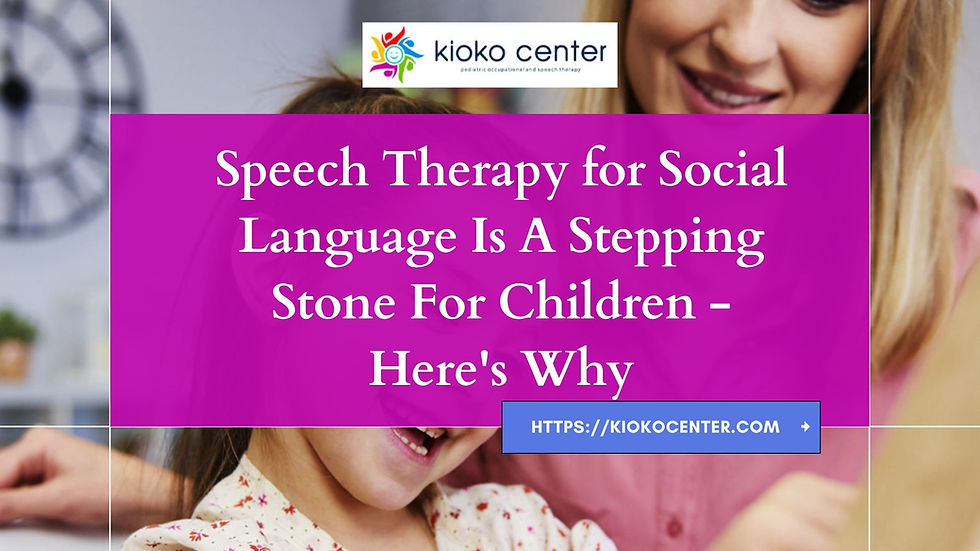Speech Therapy for Social Language Is a Stepping Stone for Children—Here’s Why
- Kioko Center
- Jul 17, 2025
- 2 min read

Your child might struggle connecting words during daily conversations with their friends at school. This happens when basic social communication skills haven’t developed properly through natural childhood growth.
Speech therapy for social language and Speech Therapy for Receptive Language offers structured pathways, helping children build these vital communication tools for lifelong success.
Speech & Development
Many parents first notice their child seems quiet during group activities or appears confused when other children start conversations.
These early signs often point toward social language challenges that could impact your child’s future relationships and learning experiences.
Understanding Social Language Development

Social language involves multiple skills working together during every conversation your child has with peers.
Your child needs these basic abilities to participate fully in classroom discussions and playground interactions:
Reading nonverbal cues like facial expressions and body language
Taking turns during conversations without interrupting other people constantly
Understanding when jokes might hurt other people’s feelings
These skills often develop naturally through daily interactions, but some children might need extra guidance from trained professionals.
Social language difficulties can make simple tasks like asking for help or making new friends feel overwhelming for young learners.
How Professional Help Makes Real Change
Working with qualified specialists gives your child structured practice opportunities they might not receive through regular daily activities.
A pediatric therapist in North Andover understands exactly which techniques work best for children facing these specific communication challenges.
During therapy sessions, your child learns practical skills through games and activities designed around their interests.
These focused interactions teach children exactly when and where to use different communication strategies during real conversations.
Building Blocks That Create Lasting Growth
Social language therapy works by breaking down complex communication skills into smaller, manageable steps your child can master gradually.
This approach means your child builds confidence while learning these vital abilities through positive experiences.
Your child might start by practicing simple turn-taking during structured games before moving toward more complex conversation skills. Each small success builds toward bigger achievements in their overall communication development.
Many children begin showing improvement within weeks of starting regular therapy sessions.
Making Smart Decisions About Your Child’s Future
Occupational therapy services & speech therapy services often complement social language work when children face multiple developmental challenges.
A combined approach gives your child access to comprehensive support addressing their unique needs through coordinated professional care.
Professional guidance also helps parents understand exactly which communication patterns their child needs extra practice developing at the house.
Such coordination means your child receives consistent support across all their daily environments.
Final Thoughts
Looking ahead, these early interventions often prevent more serious communication difficulties from developing during the teenage years. Your child gains confidence and skills that serve their needs through their entire educational journey and beyond.
Starting therapy early gives your child the best possible foundation for successful social interactions throughout their life. These communication skills serve as stepping stones toward academic success, meaningful friendships, and future career opportunities that align with their natural talents and interests.








Comments